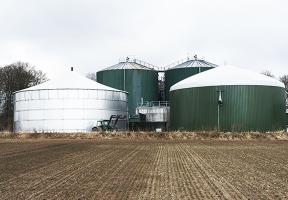Biofuels: Understanding Conventional Production Methods
15 min read

© - Ethanol and biodiesel are two products of biomass refining that can be blended with conventional petroleum-based fuels.
Biofuels are fuels produced industrially from plant . They are today blended with fossil fuels at varying concentrations. While questions still remain about their and the degree to which they compete with food crops, they are one of the most promising solutions for reducing CO2 emissions from the transportation sector, including aviation. Biofuels are currently the subject of intense research efforts around the world, as scientists attempt to make feedstocks from the ligneous part of plants and microalgae selected using cutting-edge biotechnology techniques.
Explore

Refining Plant Biomass: Biofuels, Green Chemistry
In the same way that crude oil is refined to produce fuels, plastics and numerous chemical products, plant biomass can be converted into a wide variety of products ranging from biofuels to high value‑added molecules used in "green chemistry". Extremely active research efforts worldwide are ensuring regular progress.

Biofuels: How "Green" and Sustainable Are They?
Once hailed as "green fuels", the first industrial-scale biofuels have come under scrutiny as people question the true amount of energy used in their production and their impact on food crops.

Biofuels: Refining Biomass
Biomass, like crude oil, can be refined to obtain a wide range of products. While the best known example is biofuel, other examples include lubricants, plastics, fertilizers, cosmetics and drugs. Here we take a closer look at "green chemistry" in action.




















